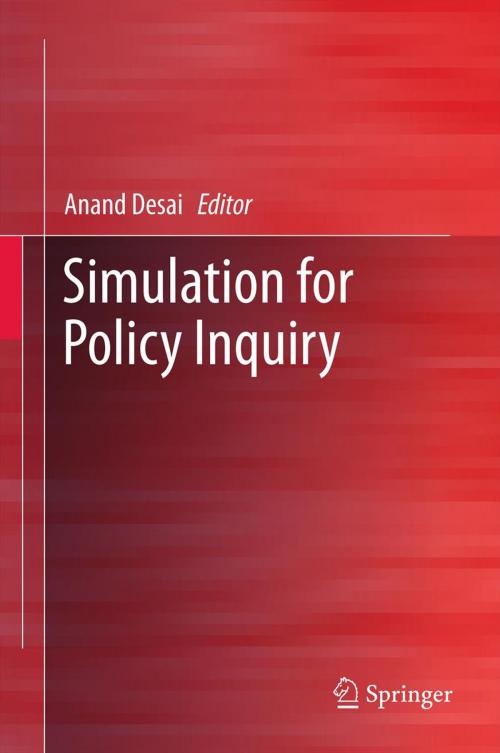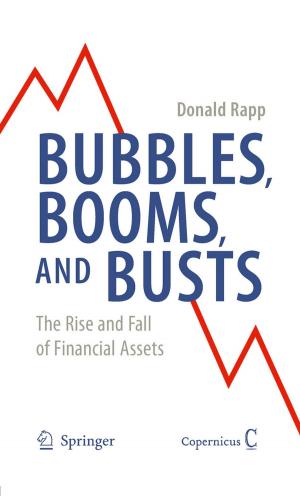Simulation for Policy Inquiry
Nonfiction, Social & Cultural Studies, Social Science, Statistics, Political Science| Author: | ISBN: | 9781461416654 | |
| Publisher: | Springer New York | Publication: | June 12, 2012 |
| Imprint: | Springer | Language: | English |
| Author: | |
| ISBN: | 9781461416654 |
| Publisher: | Springer New York |
| Publication: | June 12, 2012 |
| Imprint: | Springer |
| Language: | English |
Public policy and management problems have been described as poorly defined, messy, squishy, unstructured, intractable, and wicked. In a word, they are complex. This book illustrates the development and use of simulation models designed to capture some of the complexity inherent in the formulation, management, and implementation of policies aimed at addressing such problems.
Simulation models have long existed at the fringes of policy inquiry but are not yet considered an essential component of the policy analyst’s toolkit. However, this situation is likely to change because with improvements in computational power and software, simulation is now easier to include in the standard repertoire of research tools available for discovery and decision support. This volume provides both a conceptual rationale for using simulations to inform public policy and a practical introduction to how such models might be constructed and employed. The focus of these papers is on the uses of simulation to gain understanding and inform policy decisions and action. Techniques represented in this volume include Monte Carlo simulation, system dynamics and agent based modeling.
Public policy and management problems have been described as poorly defined, messy, squishy, unstructured, intractable, and wicked. In a word, they are complex. This book illustrates the development and use of simulation models designed to capture some of the complexity inherent in the formulation, management, and implementation of policies aimed at addressing such problems.
Simulation models have long existed at the fringes of policy inquiry but are not yet considered an essential component of the policy analyst’s toolkit. However, this situation is likely to change because with improvements in computational power and software, simulation is now easier to include in the standard repertoire of research tools available for discovery and decision support. This volume provides both a conceptual rationale for using simulations to inform public policy and a practical introduction to how such models might be constructed and employed. The focus of these papers is on the uses of simulation to gain understanding and inform policy decisions and action. Techniques represented in this volume include Monte Carlo simulation, system dynamics and agent based modeling.















